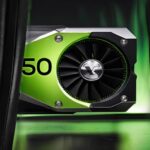
Why Your Business Needs a Content Marketing Strategy in 2024
Why Your Business Needs a Content Marketing Strategy in 2024
As we move deeper into the digital age, content has become one of the most powerful tools for businesses to engage, inform, and convert potential customers. However, creating content without a clear plan will likely result in wasted time, energy, and resources. In 2024, having a well-defined content marketing strategy isn’t just an option – it’s essential for success. Here’s why your business needs a content marketing strategy in 2024 and how it can drive growth and visibility.
1. Building Trust and Credibility
In 2024, consumers are more informed and selective than ever before. They rely on trusted sources for information and are quick to dismiss content that seems inauthentic or overly promotional. A robust content marketing strategy allows your business to produce valuable, relevant content that resonates with your target audience. By consistently delivering helpful information, you establish your brand as an authority in your industry, building trust and credibility over time.
Quick Tip:
Focus on producing educational content, such as how-to guides, tutorials, and informative blog posts that answer the most pressing questions of your audience.
2. Improving SEO and Organic Visibility
Search engine algorithms continue to evolve, prioritizing high-quality, relevant content. Having a well-planned content marketing strategy ensures that your business creates content optimized for search engines. This helps improve your website’s search rankings, making it easier for potential customers to find you when they’re searching for related products or services.
Content marketing is a long-term investment in your SEO strategy, and consistent content creation leads to more indexed pages, increased keyword opportunities, and greater online visibility.
Quick Tip:
Incorporate keyword research, internal linking, and quality backlinks into your content strategy to enhance your SEO efforts.
3. Driving Targeted Traffic
A solid content marketing strategy drives targeted traffic to your website. By creating content tailored to specific segments of your audience, you can attract visitors who are already interested in what you have to offer. Whether you’re using blog posts, videos, podcasts, or social media, content marketing allows you to reach potential customers at every stage of their buyer journey.
This targeted approach increases the likelihood of converting visitors into leads and leads into paying customers.
Quick Tip:
Create content for different stages of the buyer’s journey—awareness, consideration, and decision—so you can nurture leads from initial interest to final conversion.
4. Enhancing Customer Engagement
Content marketing isn’t just about attracting new customers; it’s also about engaging and retaining existing ones. A well-thought-out content strategy keeps your audience engaged with your brand long after their initial purchase. This might involve creating informative newsletters, offering valuable resources, or sharing industry insights that keep your brand top of mind.
By keeping customers engaged, you foster loyalty, encourage repeat purchases, and increase customer lifetime value.
Quick Tip:
Use interactive content, such as polls, quizzes, and webinars, to engage your audience and encourage two-way communication.
5. Boosting Social Media Presence
Social media plays a vital role in content marketing, serving as a distribution channel to amplify your message. However, without a strategy, your social media efforts can feel scattered and ineffective. A content marketing strategy provides structure and purpose, ensuring that the content you share on social platforms is aligned with your business goals and resonates with your target audience.
In 2024, businesses that integrate social media with their content marketing efforts will experience increased reach, higher engagement, and more meaningful connections with their audience.
Quick Tip:
Repurpose content across multiple social media platforms to reach a wider audience, but tailor it to each platform’s unique style and format.
6. Cost-Effective Marketing
Compared to traditional advertising methods, content marketing is highly cost-effective. While creating high-quality content requires time and effort, the long-term benefits often far outweigh the initial investment. With a content strategy, you can repurpose and update existing content to maintain relevance and avoid constantly creating new material from scratch.
Moreover, content marketing provides an ongoing return on investment (ROI). A well-optimized blog post, for example, can continue driving traffic and generating leads long after it’s published, whereas paid ads stop delivering results as soon as you stop funding them.
Quick Tip:
Create cornerstone content pieces that can be repurposed into smaller, shareable assets like social posts, infographics, or videos.
7. Building Brand Identity and Storytelling
In a crowded digital marketplace, having a distinct brand identity is crucial. A well-executed content marketing strategy allows you to tell your brand’s story, communicate its values, and connect with your audience on a personal level. By consistently producing content that aligns with your brand’s voice and mission, you can create an emotional connection with your customers, turning them into loyal advocates.
Storytelling through content helps humanize your brand, making it more relatable and memorable.
Quick Tip:
Incorporate personal stories, customer testimonials, and case studies into your content to show the real impact of your products or services.
8. Supporting Sales and Lead Generation
Content marketing isn’t just about brand awareness—it’s a powerful tool for lead generation and sales support. By creating content that addresses your audience’s pain points and challenges, you guide them through the decision-making process. A strategic approach ensures your content is tailored to their needs, helping them overcome objections and take the next step toward conversion.
Whether it’s through blog posts, whitepapers, or videos, content marketing provides the information your leads need to make informed purchasing decisions.
Quick Tip:
Include strong calls-to-action (CTAs) in your content that direct users toward your desired next steps, such as signing up for a newsletter or booking a demo.
9. Gaining a Competitive Edge
In 2024, competition in the digital space will be fiercer than ever. Brands that leverage content marketing will have a distinct advantage over those that don’t. A strategic content approach allows your business to differentiate itself by offering unique value to your audience. When your content consistently provides solutions, insights, and entertainment, you stand out from competitors who may be focused solely on selling.
By positioning your brand as a thought leader, you increase your chances of being the go-to resource in your industry.
Quick Tip:
Regularly analyze your competitors’ content and identify gaps where your business can offer better or more comprehensive solutions.
10. Adapting to Evolving Consumer Behavior
Consumer behavior is constantly changing, and 2024 will see even more shifts as technology and preferences evolve. A content marketing strategy allows your business to stay agile, adapting to these changes by creating content that aligns with current trends and customer expectations. Whether it’s optimizing for voice search, creating short-form videos, or addressing sustainability concerns, staying ahead of trends keeps your brand relevant.
With a data-driven content strategy, you can track customer engagement, adjust your messaging, and continuously improve your content’s performance.
Quick Tip:
Use analytics tools to monitor the performance of your content and refine your strategy based on what resonates most with your audience.
Conclusion
In 2024, content marketing will be more essential than ever for businesses looking to build trust, drive traffic, and stay competitive. A well-planned content marketing strategy is the foundation for long-term success, offering a cost-effective way to engage with your audience and foster meaningful connections. Whether you’re a small business or a large enterprise, the time to invest in a solid content strategy is now.
Start planning your content marketing strategy today, and watch your business thrive in the coming year!




